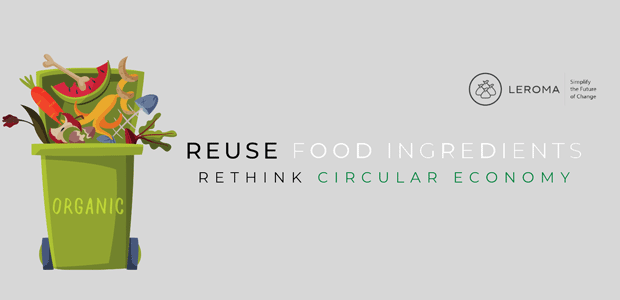
LEROMA – an efficient procurement of raw materials
More than 1.6 billion tons of food are wasted every year. 40% of the waste occurs at the beginning of the value chain. This causes economic losses of $660 billion in the food industry.
This could be avoided through good resource management and an expanded circular economy. That was the motivation for us to make a change. LEROMA's vision is to act sustainably and economically because everyone can make their contribution.
After working in the food industry for several years, founder Marina Billinger created the B2B platform LEROMA in 2019 to fight against the waste of raw materials and increase the transparency on the market. Thus, raw materials can be efficiently procured by players in the food industry.
Raw material suppliers can advertise their raw materials on LEROMA. In this way, a comprehensive raw materials database is created, which is constantly expanded with each new partner. Food manufacturers benefit from the database, in which they can easily find the raw materials they need and their suppliers without spending a lot of time.
LEROMA's unique selling point are the specific filters that can be set differently for each product. In addition, the appropriate certificates are available for each raw material, which provide information about the quality of the product.
The platform additionally offers a surplus exchange where every company can offer its raw material residues for sale and therefore contribute to a more sustainable world. Food manufacturers who have miscalculated the purchase of raw materials, have received raw materials with the wrong technical criteria or no longer need a raw material for a discontinued production can pass on their residual stock to other food manufacturers, including other industries, on the marketplace and thus contribute more to sustainability in the form of a circular economy. But also residual materials and by-products that arise during the manufacturing of products can be advertised on the surplus exchange. LEROMA wants to promote cross-industry cooperation and in consequence reduce food waste.
In the past, more than 100 tons of raw materials have already been saved. Some surpluses are used in neighboring industries. Coffee beans that have been roasted too darkly could be used as a natural substitute for microplastics in exfoliants in the cosmetics industry. At the same time, coffee grounds are also suitable as a sustainable fertiliser that is rich in nutrients.
Particularly versatile in the processing of fish are the residual products, such as fish skin. This raw material can be used to produce collagen capsules, which are used in the cosmetics and pharmaceutical industries. Fish bones are another valuable product obtained during processing. They are excellent for the production of flour, oil and even bioplastics. Bioplastics decompose much faster than conventional plastics and are more environmentally friendly.
Furthermore, LEROMA was able to participate in a Horizon project in 2020, entitled "Lowinfood", which addresses the issue of food raw material waste. Within this project, LEROMA is supported by the European Commission with partners from the EU.
In cooperation with food technologists, LEROMA has been able to build and expand the raw material database with various filters and criteria that have been specially adapted for each raw material. At the same time, in cooperation with the Technical University in Berlin and food technologists, LEROMA is expanding the expertise for raw material transfer.

